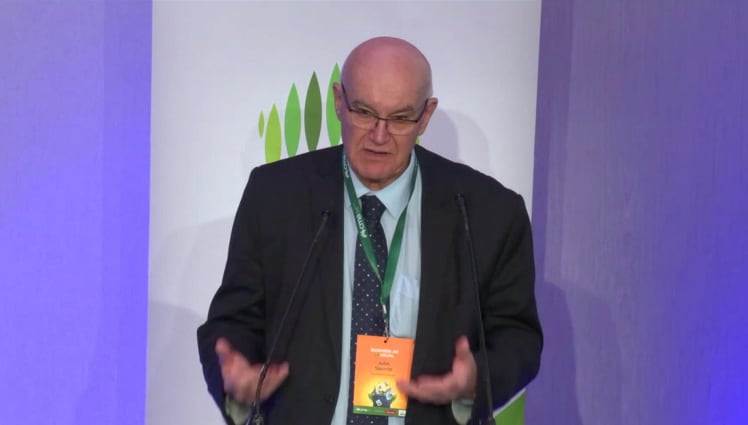Adjunct professor John Skerritt, deputy secretary at the Australian Department of Health – which oversees the TGA – pointed out the above when speaking at an event held by industry association Complementary Medicines Australia last week (Dec 16).
During the talk, he pointed out a number of pertinent projects that the TGA has been focusing for the past year, one of which was having to meet China’s new customs regulations within a short time frame.
In April, China’s General Administration of Customs PRC (GACC) issued new regulations which required all manufacturers of foods, including dietary supplements, exported into the country to be registered with the customs from Jan 1, 2022.
Failure to do so means that the exports will not be accepted.
Based on GACC’s announcements, certain exported foods, including dietary supplements, have to receive recommendation/endorsement from the country’s competent authority before they could be registered.
Prof Skerritt revealed that the TGA had endorsed 1,284 complementary medicines by end October – which was the dateline for pre-registration of the products with the GACC.
“We had about two weeks to notify our health operators in October and we contacted over 1,300 sponsors big and small and we have about 11,000 AUST-L complementary medicines.
“We explained the situation and we had put through 1,284 products that required an endorsement by us,” he recounted.
For several months, the Chinese customs did not make further explanations or guidelines about the new rules after first announcing it in April, and this had caused a lack of clarity, with some speculating that the Chinese customs would push back the official date of implementation.
To which, Prof Skerritt said that as compared to other countries, Australia had done “the right thing” by taking the issue seriously.
“I think Australia is in a good position here, because when we were talking to other regulators about this, some of them were saying: ‘No, the Chinese will realise that this is all too much for a rush, they will put it off for two or three years, we are not doing anything with the industry and so forth.’
“Well, I actually think that we did the right thing here, because the Chinese came back and said: ‘Sorry, we are not moving the datelines.’
“We complained about the rules, but we actually are in a better situation than many of our competitors,” he said.
Aside from the TGA, other authorities such as Canadian Food Inspection Agency (CFIA) and Japan’s Ministry of Agriculture, Forestry, and Fisheries (MAFF) had made announcement on how they would work with the dietary supplement sector to meet China customs’ requirements.
“Many of you will know this better than I, that the Chinese government has a habit of introducing things very quickly, requiring compliance in a matter of weeks and usually leave it to the last moment to be quite clear about what the documentation or the expectations are.
“I saw this [TGA endorsing the products in time] as an example of collaboration between the regulator and the regulated industry,” he said.
Plans next year
Next year, the TGA will focus on areas such as new evidence guidelines and regulations on probiotics.
Public consultation on the new evidence guidelines on complementary medicines had started earlier this year.
“The [point about the] evidence guidelines is not about redoing it and moving the goalpost. The idea is to remove ambiguity and not about increasing evidence requirements,” Prof Skerritt explained.
On the other hand, he pointed out that probiotic industry is growing globally and the TGA has been working on the relevant regulations.
“Increasingly, particular strains and common combinations of strains and mixture of strains have been promoted as having particular effects and is a challenge [for us].
“We are trying to work through a sensible compromise that enables you to make claims that are verifiable, including quantification by input, when there haven’t been other methods that have been validated,” he said, adding that the regulator would also reference the pharmaceutical standards during the process.
“It is a challenging area, because the intersection between the pragmatics of not overstating the situation in a product that might be a-year-and-a-half old and you actually don’t know the strain ratios of every individual strain or strain amounts in an aged product in the matrix versus being able to say what’s on the label when it was manufactured.
“We just have to do a little bit more work on it, but I think it is coming together,” he said, adding that the use of new ingredients would be encouraged to promote innovation.



